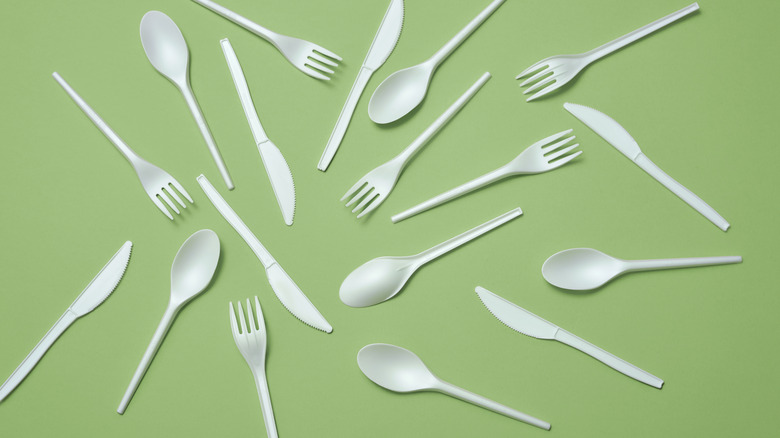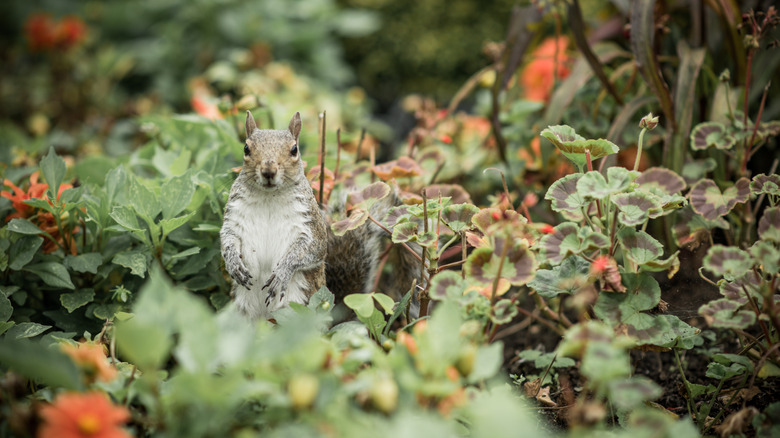Stop Throwing Out Plastic Silverware — Give Them New Life In Your Garden Instead
Reduce, reuse, and recycle are the three basic practices for reducing the amount of garbage you create. While the focus for many has primarily been on recycling, reusing is just as important, if not more so in many contexts. One great way to reuse plastic silverware in your home and prevent it from piling up in a landfill is to give it a new life in your garden.
Sometimes, for one reason or another, our plants like to lean to one side. If it's allowed to go on, that leaning will impact growth and may even encourage pest activity or fungal growth, so for their own sake, you can prop small seedlings up using a couple of plastic forks. Simply insert the handle into the soil and gently place the plant's stem to rest between the tines of the fork. It will support the plant and keep it from leaning over, and eventually, it should start growing upright. If the stem is too thick to fit, try removing one or both of the inner tines to make room.
Of course, it doesn't have to stop there. Many types of single-use plastic make for very versatile garden tools that can be of great help in your garden. Just like you can use plastic forks to help your plants grow, plastic takeout boxes can be used in the garden to sprout them in the first place.
More uses for plastic silverware in your garden
Plastic forks and silverware are good for more than just keeping plants upright. For example, when planting new seeds, you can write the name of the plant on the back of a plastic spoon and insert the handle into the soil, reusing that spoon as a marker. This way, you can easily remember where your greenery is and avoid mixing it up, so you don't have to worry about mistaking your easy-to-grow cucumbers for plants like mint, which typically need more care.
Meanwhile, gardeners know all too well the pain of pests. Varmints just love to prey on our tender greens, and a good way to keep at least some of them out is by sticking plastic forks in the ground with the tines facing up. If ground pests like squirrels come after your plants, they'll get poked by the tines for their trouble. What's more, since you were handling the forks, they also likely carry your scent, which can help deter unwanted garden visitors from entering in the first place.
Use plastic knives or forks to create holes for seeds when planting new veggies or aromatic herbs for attracting hummingbirds. Plastic forks make good at-hand tools for aerating your garden soil, at least in small pots. Insert them into the soil with the tines down to allow oxygen to penetrate the soil and help prevent soil compaction.

